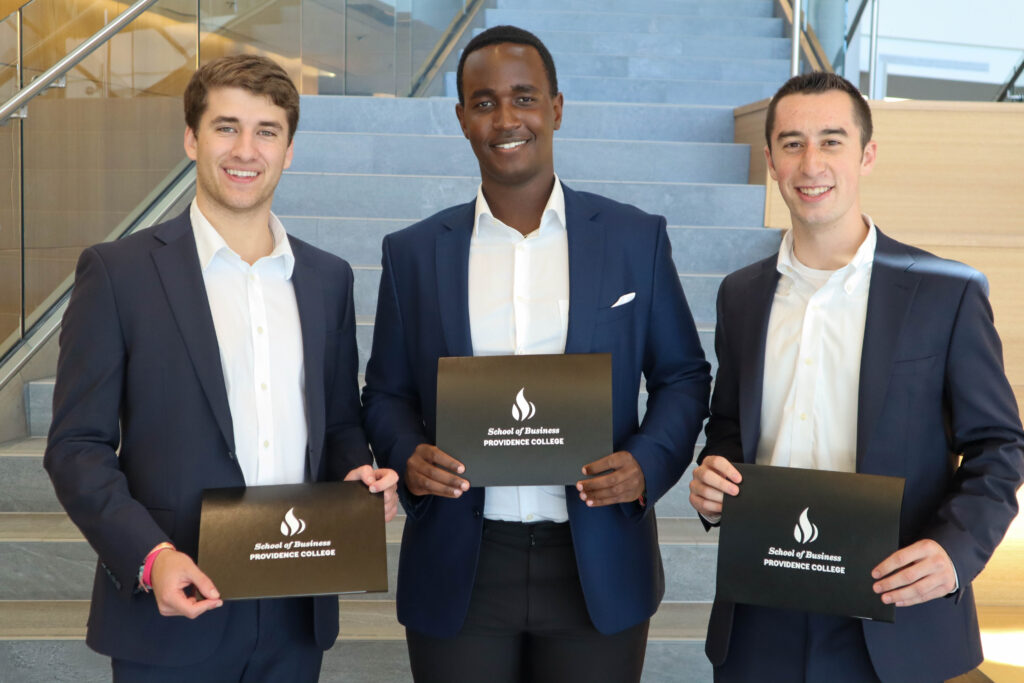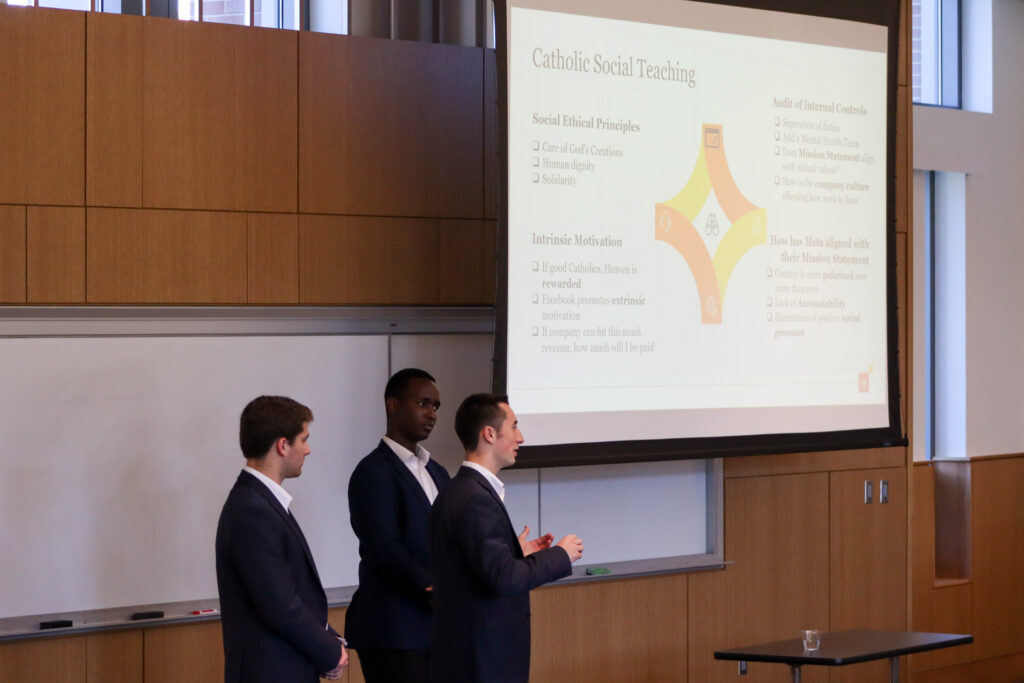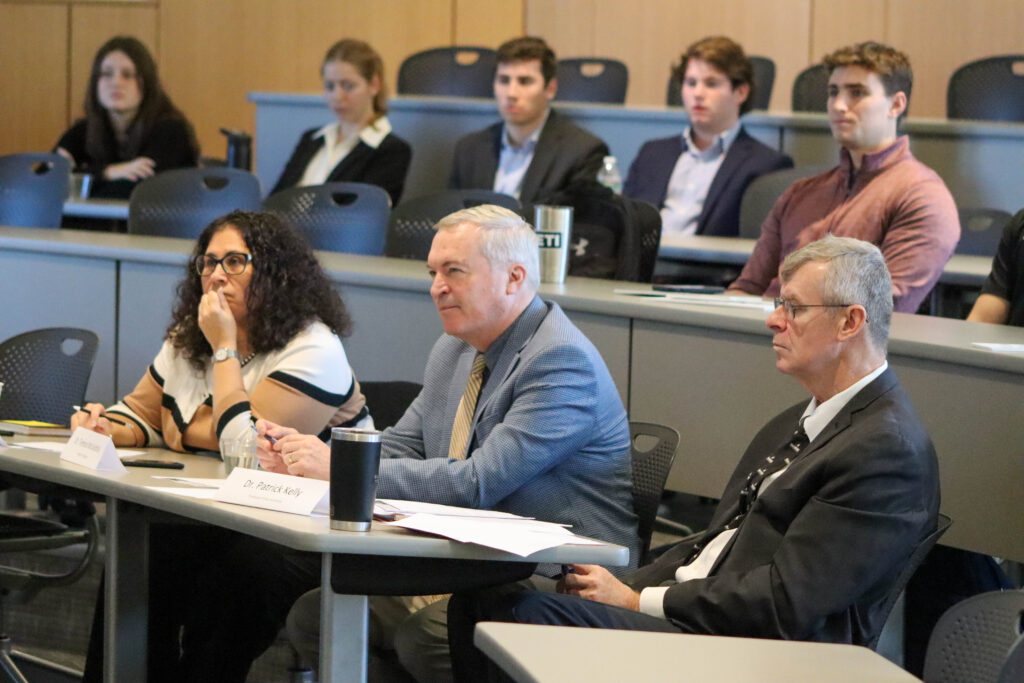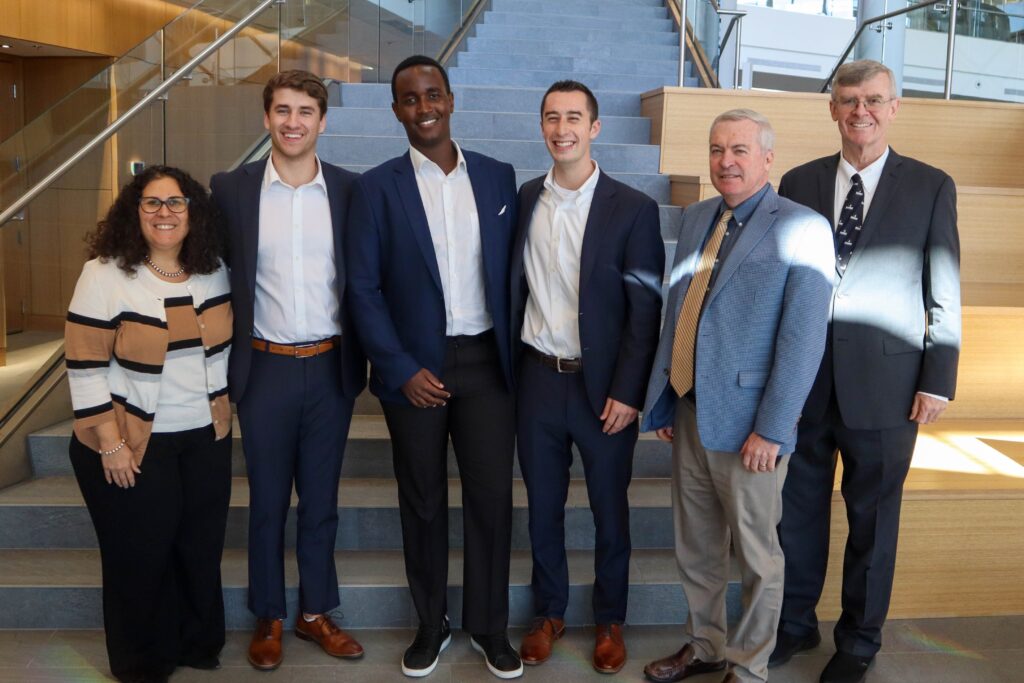PCSB Students Impress at Business Ethics Case Competition

In an ethics case ripped from the headlines, the Providence College School of Business challenged undergraduate students to put themselves in the shoes of the U.S. Senate subcommittee evaluating whistleblower testimony about Facebook.
On Saturday, October 29, the PCSB hosted the final round of the Business Ethics Case Competition. Four teams participated in the final round of the competition, which engages students to think critically about ethical issues in business.
This year’s topic was based on testimony provided by Frances Haugen, a whistleblower and former employee at Facebook, before the U.S. Senate Subcommittee on Consumer Protection, Product Safety, and Data Security. Haugen called for Congressional action, accusing Facebook of promoting psychological insecurity, misinformation, and division among its users. Teams were asked to address the subcommittee, identifying at least three ethical issues as they relate to Facebook’s practices, and to explain why they are important as the subcommittee continues its investigation.
Teams were allocated 30 minutes to present their findings and answer questions from the judges, consisting of Patrick Kelly, Ph.D., professor of accountancy and director of the Ethics in Business Education Program; Terence McGoldrick, Ph.D., professor of theology, and Jacqueline Elcik, PCSB senior associate dean. After all teams presented, the judges convened to determine the winners.

The winning team was comprised of Bobby McGuire ’24, Tommy Ishimwe ’24, and Jacob Bazyk ’24. Referring to the ethical frameworks of deontology, Catholic social teaching, and virtue ethics, these students connected their chosen frameworks’ guidelines to Facebook’s alleged wrongdoings. After discussing the ethical theories, McGuire, Ishimwe, and Bazyk offered recommendations for Meta, Facebook’s parent company, to use.
“We found there to be a lot of unethical behavior going on,” said McGuire, an accounting major. “One of our main recommendations was to consider implementing an oversight board, which would limit not only Meta but other Big Tech social media companies and hold them to a higher standard.”
Throughout the process, the group was able to refine important skills—such as critical thinking and team-based work—that will help them in their future careers. Bazyk, a finance major, realized that the experience of speaking to a panel of judges simulated the real-world.
“[It’s] not a typical class environment where you talk in front of your peers. You’re getting judged on how you’re speaking,” he added.

The competition has been ongoing for several years. Kelly mentioned that previous teams have grappled with ethical issues relating to topics like driverless cars, head injuries in the NFL, and student loan debt. He credits the cases’ relevance as a reason for students’ engagement.
“So far, all the cases have been really well received. Because I work with a group [of fellow professors], everyone has input in deciding if students think [a topic is interesting or not].”
McGuire, Ishimwe, and Bazyk were clearly energized by the subject matter. By placing first, they will advance to the Michael Smith International Business Ethics Case Competition, hosted by Providence College and named after Michael Smith ’65, in February. Teams representing competing schools will attend virtually.

Having reached this point, few things were more important to PC’s representatives than their own moral guidance.
“Everything [we discussed] connected to the case, but we needed to make sure that whatever we were talking about could resonate with us,” said Ishimwe, a management major.
“That’s what brought out the passion we had for this case.”
Past competitions Ethics in Business Education Program




